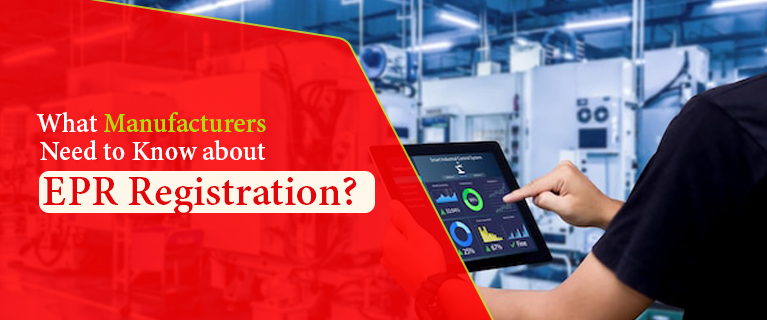Challenges And Opportunities In Implementing EPR Registration
Extended Producer Responsibility (EPR) registration is a pivotal initiative aimed at addressing the environmental impact of products and promoting sustainable waste management. In this blog, we will explore the challenges and opportunities associated with implementing EPR registration. By understanding the key aspects of EPR and its significance, we can navigate the complexities and harness the potential benefits of this transformative approach.
1. Understanding EPR Registration
A legislation known as Extended Producer Responsibility (EPR) holds producers accountable for the entire lifecycle of their products, including the post-consumer phase. EPR registration entails the legal obligation for producers to manage the collection, recycling, and safe disposal of their products to minimize environmental harm.
2. Regulatory Challenges
Implementing EPR registration poses several challenges at the regulatory level. These include the need to establish clear guidelines and legal frameworks, ensure compliance, and define the roles and responsibilities of various stakeholders. Developing robust enforcement mechanisms and monitoring systems is essential to track the progress and effectiveness of EPR initiatives.
3. Financial Implications
One of the significant challenges in implementing EPR registration is determining the financial mechanisms required to support the collection, recycling, and disposal of products. Producers may face increased costs associated with establishing collection systems, recycling infrastructure, and managing the logistics of waste management. Collaborative efforts between producers, governments, and waste management entities are crucial to finding sustainable financing models.
4. Stakeholder Engagement
EPR registration necessitates active participation and collaboration among various stakeholders, including producers, government bodies, consumers, and waste management entities. Engaging and educating these stakeholders about their roles and responsibilities is vital for successful implementation. Building partnerships, fostering dialogue, and promoting awareness can enhance the effectiveness and acceptance of EPR initiatives.
5. Innovation and Circular Economy Opportunities
While EPR registration presents challenges, it also opens up significant opportunities for innovation and the development of a circular economy. Producers can explore new business models that prioritize waste reduction, resource efficiency, and product design for recycling. Investing in research and development to create environmentally friendly materials and technologies can drive the transition to a more sustainable and circular economy.
6. Social and Environmental Benefits
Implementing EPR registration brings about numerous social and environmental benefits. By placing the burden of waste management on producers, it reduces the load on regional municipalities. Proper recycling and disposal of products minimize pollution, conserve resources, and mitigate the adverse effects of waste on ecosystems and public health. Additionally, it fosters job creation in the recycling sector and promotes a greener economy.
Read Also This - Essential Documents for EPR CertificationConclusion
EPR registration presents both challenges and opportunities in the quest for sustainable waste management. Overcoming regulatory hurdles, establishing financial mechanisms, and engaging stakeholders are key to effective implementation. Embracing EPR can drive innovation, foster a circular economy, and reduce the environmental footprint of products. By placing the onus on producers, EPR registration encourages responsible practices and enables society to move towards a more sustainable future. With collaborative efforts and strategic planning, we can unlock the potential of EPR and create a circular economy that benefits the environment, businesses, and communities at large




Comments
Post a Comment